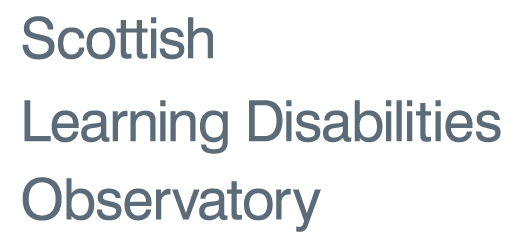Solutions focused research

Resources for families and carers
Our programme of solutions-focused research includes designing, delivering and evaluating resources and information created to support families and carers of people with learning disabilities. These include co-produced resources with information about navigating post-secondary school transitions, as well as an online programme to support family carers of someone with learning disabilities following the Covid-19 pandemic. Find out more about these resources.

Cancer screening and learning disabilities
There are three national cancer screening programmes in the UK – breast, cervical, and bowel. People with learning disabilities take part in each of these programmes at lower rates than the general population. This study aimed to explore the barriers and facilitators people with learning disabilities face to getting cancer screening and to develop potential interventions to make bowel screening easier to use for people with learning disabilities.
Read more about this study.

Social Inclusion
Social inclusion is regarded as an important determinant of health and well-being among people with intellectual and developmental disabilities. Many people with intellectual and developmental disabilities experience social exclusion and discrimination, which has significant implications for the individual, their family and wider society.
Long-term exclusion has widespread negative effects and may contribute to further marginalisation of already vulnerable and marginalised individuals. Developing opportunities for shared learning among individuals may contribute towards the goal of social inclusion for all people with intellectual and developmental disabilities. Promoting social participation between people with IDD and those in the wider society that is frequent and meaningful, such as social interactions and relationships between people with IDD and their peers without disabilities, will more likely lead to improved outcomes such as better health, reduced stigma and discrimination and enhanced quality of life.
Read about our projects here.

Lifestyle Behaviours
Lifestyle behaviours can directly influence the health status of people with intellectual disabilities and may be indirectly affected by environmental factors. Behavioural factors of health include getting adequate exercise, practising good nutritional habits, refraining from smoking and understanding options and choices regarding decision making. In general, lifestyle behaviours maintain or enhance health status, control or remove harmful risk factors, and prevent the onset of chronic conditions.
Investing in health promotion programmes for people with intellectual disabilities can have a substantial impact on improving their health and quality of life.
Read about our projects here.

COVID-19 and intellectual disabilities
Throughout 2020-2021 we conducted a UK-wide survey to track the experiences of people with learning disabilities to understand the impact of Covid-19 on their lives. The survey was designed in collaboration with partner organisations, people with learning disabilities and their family carers. We carried out three waves of data collection across the UK. A follow up study was carried out in 2022. Read more about the studies here.

Psychological therapies
Mental health problems are common in people with intellectual disabilities. Psychological therapies are first line interventions for people with mental health problems in the general population. However, existing psychological therapies are not accessible for many people with intellectual disabilities. This research reports on the development and adaptation of psychological interventions for people with an intellectual disability. Randomised controlled trials are used to evaluate the effectiveness of these psychological interventions. Read more about our research projects here.
